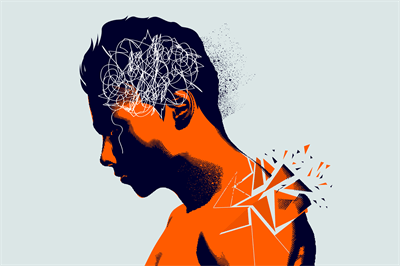
Breaking the Silence: Men’s Mental Health, Violence, and Shattering Stereotypes
In our society, discussions surrounding domestic violence, sexual assault, and mental health often revolve around women as victims. However, it is crucial to recognize that men can also experience these forms of violence and face significant mental health challenges as a result. By shedding light on this often-neglected issue, we aim to break the stigma surrounding men as only perpetrators and advocate for their well-being. In this blog post, we will delve into the impact of violence on men’s mental health, provide supporting evidence from various sources, and explore how our community can help shatter these harmful stereotypes.
Domestic Violence: The Hidden Faces:
Behind closed doors, countless men suffer in silence as victims of domestic violence. The prevailing societal narrative that portrays men only as aggressors perpetuates the myth that they cannot be victims. Yet, research studies, such as the National Intimate Partner and Sexual Violence Survey conducted by the Centers for Disease Control and Prevention (CDC), reveal that a significant number of men experience domestic violence. In fact, the CDC reports that about 1 in 10 men have experienced some form of intimate partner violence [Source: CDC]. These findings should compel us to recognize men as victims, deserving of support and empathy.
Mental Health Consequences:
The impact of violence on men’s mental health is profound. Men who have experienced domestic violence or sexual assault often grapple with a range of mental health issues. According to a study published in the Journal of Interpersonal Violence, male victims of domestic violence are at a higher risk of developing depression, anxiety, post-traumatic stress disorder (PTSD), and substance abuse disorders [Source: Journal of Interpersonal Violence]. These mental health challenges can significantly hinder their ability to heal and rebuild their lives.
Overcoming the Silence: Men as Survivors:
The silence surrounding male victims of domestic violence and sexual assault is a consequence of societal expectations and deeply ingrained gender stereotypes. Men often face judgment, ridicule, and disbelief when they dare to speak out about their experiences. The fear of being stigmatized or not being taken seriously can contribute to their silence. However, it is essential to acknowledge the mental health toll that such traumatic experiences can inflict. Male survivors of violence may experience feelings of shame, guilt, and low self-esteem, exacerbating their mental health struggles.
Challenging the Stigma: Breaking Free from Stereotypes:
To truly address the issue of men as victims of violence, we must actively challenge societal norms and stereotypes. It is time to recognize that men can be survivors too, deserving of our empathy, support, and understanding. The American Psychological Association emphasizes the need for open discussions about male experiences, promoting empathy and fostering an environment where men feel safe to share their stories without judgment. By amplifying their voices and acknowledging their pain, we can dismantle harmful stereotypes and foster a more inclusive and compassionate society that supports the well-being of all individuals.
Community Support and Resources:
Supporting male survivors requires a collective effort from our community. We must educate ourselves about the unique challenges faced by men who experience domestic violence and sexual assault. By raising awareness, we can help dispel the misconceptions surrounding male victimhood and ensure that appropriate resources and services are available. Organizations like Kingdom Builder’s Family Life Center play a vital role in providing counseling, support groups, and advocacy for male survivors. By collaborating with such organizations and actively promoting their services, we can contribute to breaking the stigma and providing much-needed support to male survivors.
Empathy and Compassion: A Path to Healing:
Building empathy and compassion is fundamental in supporting male survivors on their healing journeys. We must listen to their stories without judgment, validating their experiences, and offering unwavering support. The Rape,
Abuse & Incest National Network (RAINN) emphasizes the importance of believing survivors and encouraging them to seek help when needed. By creating safe spaces for dialogue and fostering understanding, we can contribute to breaking the silence surrounding men’s experiences of violence and ensuring they receive the care and support they deserve.
Men’s mental health and their experiences of violence are often overlooked and overshadowed by prevailing stereotypes. By acknowledging the reality of men as victims, we can challenge societal norms, break the stigma, and foster a community that supports their healing. Together, let us shatter the silence and build a more compassionate world—one that recognizes the importance of men’s mental health, values their experiences, and stands firmly against all forms of violence.
Sources:
– Centers for Disease Control and Prevention (CDC)
– Journal of Interpersonal Violence
– American Psychological Association
– Kingdom Builder’s Family Life Center
– Rape, Abuse & Incest National Network (RAINN)

 (719) 247-8190
(719) 247-8190